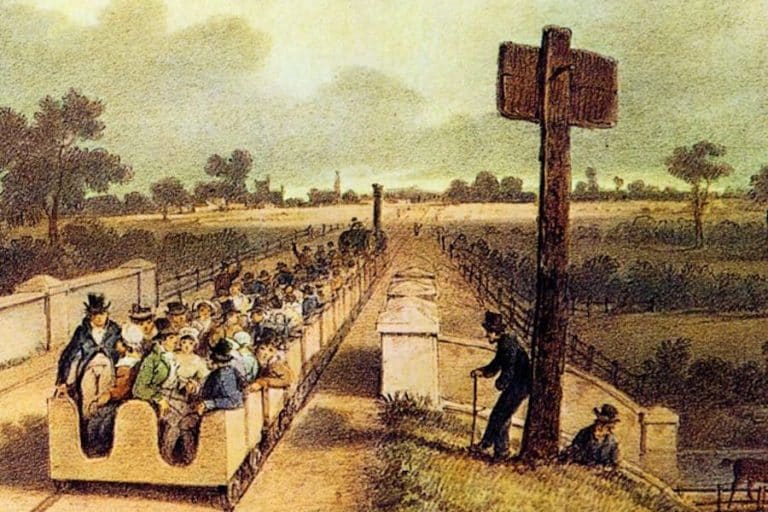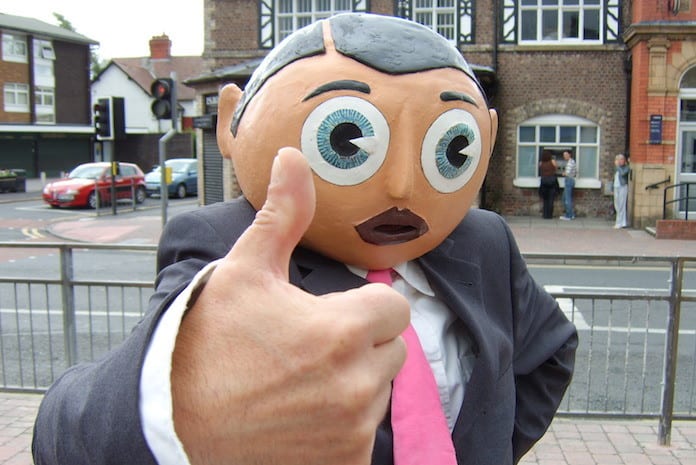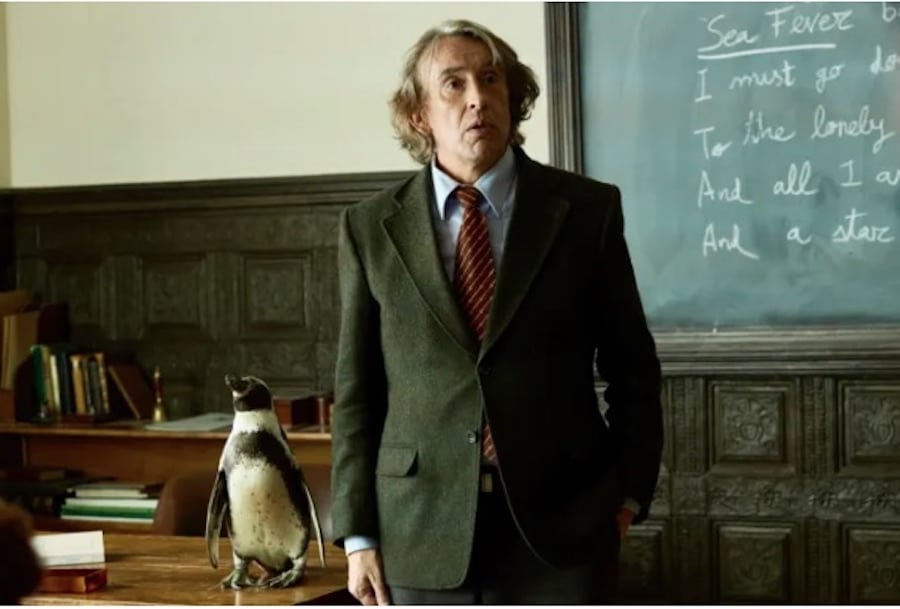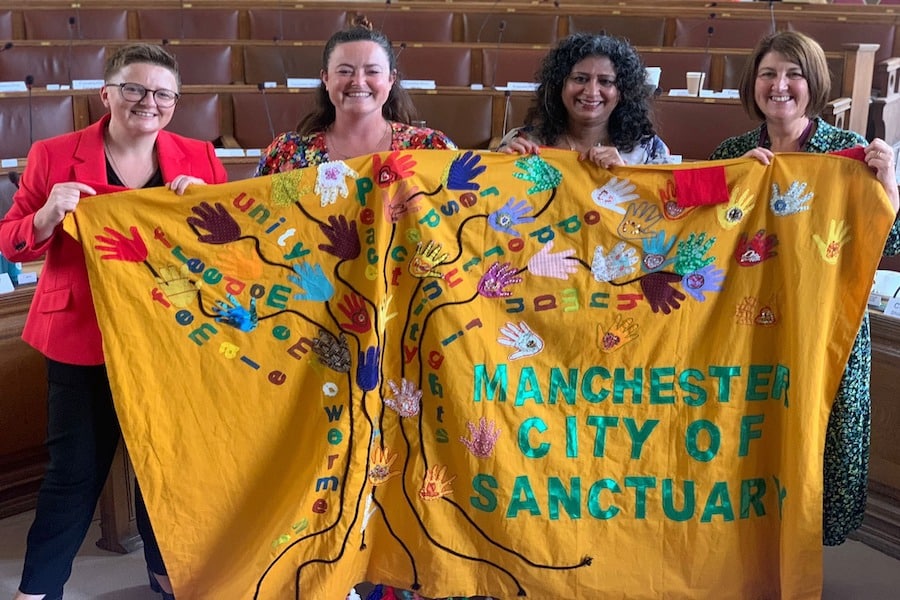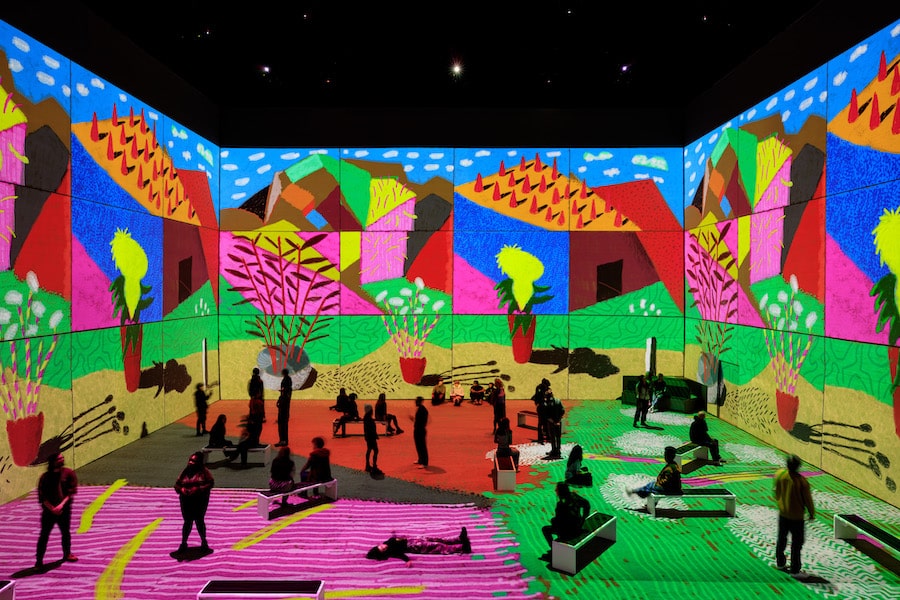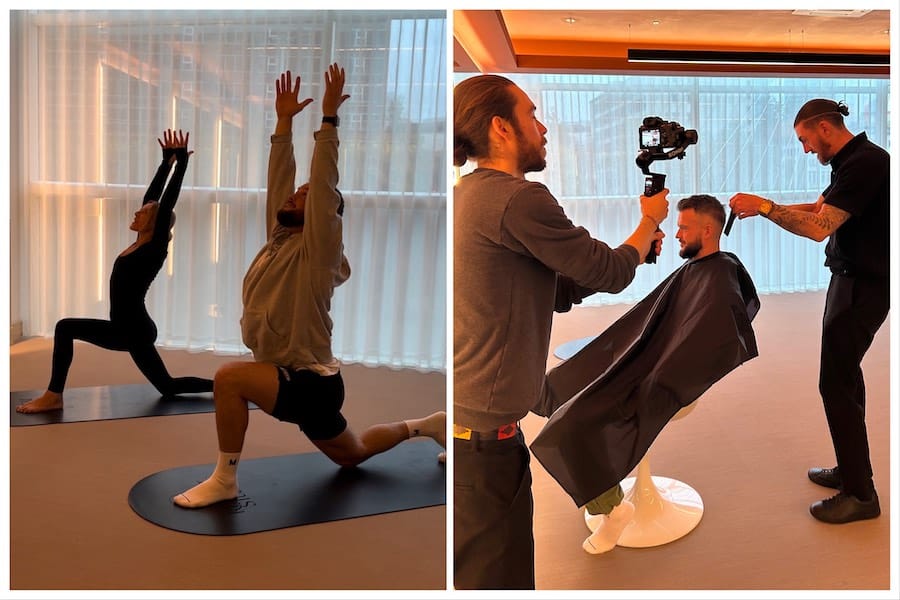Dedicated to all Defenders of Human Freedoms: The Art of Paul Peter Piech opens in Manchester
- Written by Emily Oldfield
- Last updated 8 years ago
- Art & Design, Culture, Exhibitions, Museums
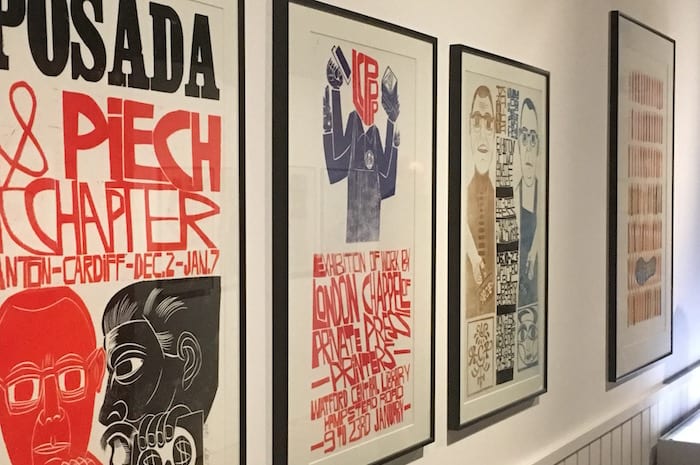
See some of the twentieth century’s most daring political posters and prints as an exhibition featuring the work of artist and printmaker Paul Peter Piech gets underway at The People’s History Museum.
Piech is one of those inspiring figures who tells us that we hold the power of change – and this exhibition is the unique opportunity to engage with his art, message and life, whilst also marking the 20th anniversary of his death.
His colourful posters and prints are loaded with phrases ready to pull the audience in, such as John Donne’s ‘Any man’s death diminishes me, because I am involved in mankind’.
The exhibition lets us not only engage with a range of artworks including those from the Piech family’s private collection, but uncovers more about how his experiences as a humanitarian and campaigner – for groups such as the CND and Amnesty International – shaped his work.
Visitors to the exhibition will also be able to discover how Piech developed his printmaking techniques from woodcut to letterpress. His original printmaking tools, rollers and linocutting equipment will be on display, thanks to the Regional Print Centre which is jointly curating the exhibition with The People’s History Museum.
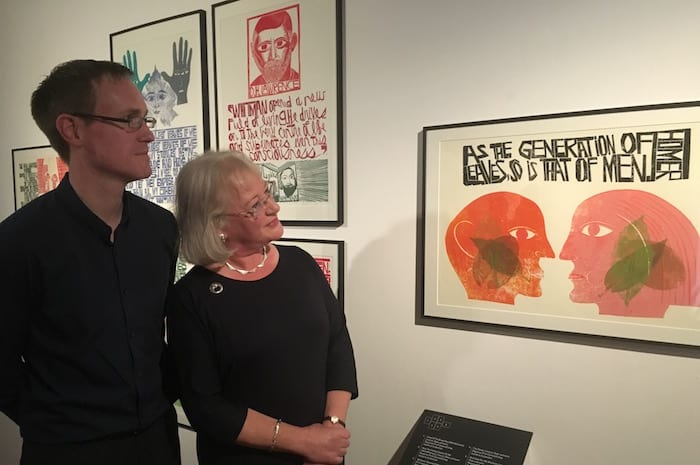
Although Piech spent much of his life in Wales, he was born in America to Ukrainian parents in 1920. He attended New York’s Cooper Union School of Art but his studies were suspended by the outbreak of the Second World War, during which he was posted to the UK. Here he met his future wife, Irene Tomkins, moving to Wales after the war and then London where he refined his skills in fine art and lithography at the Chelsea School of Art.
Piech went onto create some of the most iconic posters of modern times – including the psychedelic -inspired prints with what were at the time socially ground-breaking messages including ‘Racism is a Poison’ and incorporating quotes from influential figures such as Martin Luther King’s ‘Love is the only force capable of transforming an enemy into a friend’.
Mark Wilson of the People’s History Museum, says “Piech’s own support and voice for liberal causes together with his skills and artistry in printmaking make him one of the masters of the political poster, which this retrospective explores and celebrates.
“He was also a great observer of his time, often using the words and quotes of politicians and leading figures in his visuals. To understand his work and legacy, you need to understand the man, and through Dedicated to all Defenders of Human Freedoms we’ve set out to share Piech’s story as well as his work.”
What makes the exhibition even more interesting is that Piech wasn’t only an activist, he was also an advertising man working as artistic director on big campaigns for companies like BP, ICI and British Steel.
He also started Taurus Press which became a platform for his progressive political views.
To see Piech’s work is to witness some of the key social and political messages of the 20th century take shape, as well as exploring the relationship between advertising and activism. Have a look for yourself at The People’s History Museum.
Dedicated to all Defenders of Human Freedoms, The Art of Paul Peter Piech is on until 12 February 2017 and is free.
www.phm.org.uk
- This article was last updated 8 years ago.
- It was first published on 3 October 2016 and is subject to be updated from time to time. Please refresh or return to see the latest version.
Did we miss something? Let us know: [email protected]
Want to be the first to receive all the latest news stories, what’s on and events from the heart of Manchester? Sign up here.
Manchester is a successful city, but many people suffer. I Love Manchester helps raise awareness and funds to help improve the lives and prospects of people across Greater Manchester – and we can’t do it without your help. So please support us with what you can so we can continue to spread the love. Thank you in advance!
An email you’ll love. Subscribe to our newsletter to get the latest news stories delivered direct to your inbox.
Got a story worth sharing?
What’s the story? We are all ears when it comes to positive news and inspiring stories. You can send story ideas to [email protected]
While we can’t guarantee to publish everything, we will always consider any enquiry or idea that promotes:
- Independent new openings
- Human interest
- Not-for-profit organisations
- Community Interest Companies (CiCs) and projects
- Charities and charitable initiatives
- Affordability and offers saving people over 20%
For anything else, don’t hesitate to get in touch with us about advertorials (from £350+VAT) and advertising opportunities: [email protected]
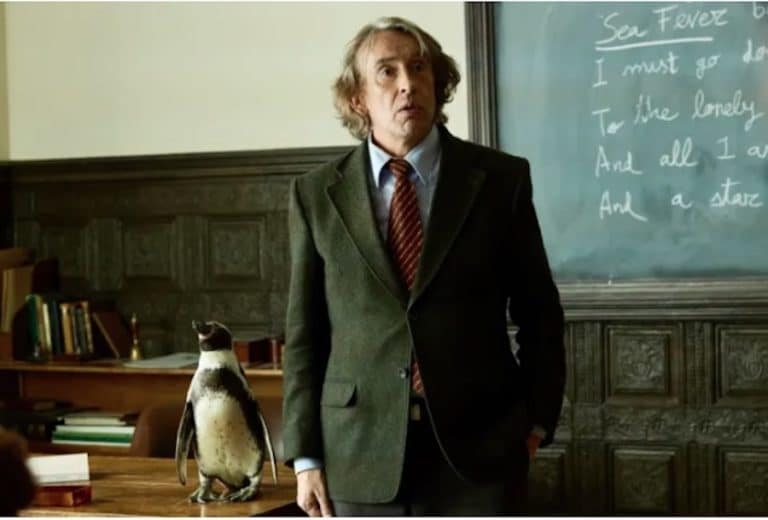
“A spectacular showcase of storytelling” Manchester Film Festival reveals 2025 line up

Manchester is a ‘city of sanctuary’ – but what does that mean?


Is this the most ambitious regeneration project in Manchester’s history?
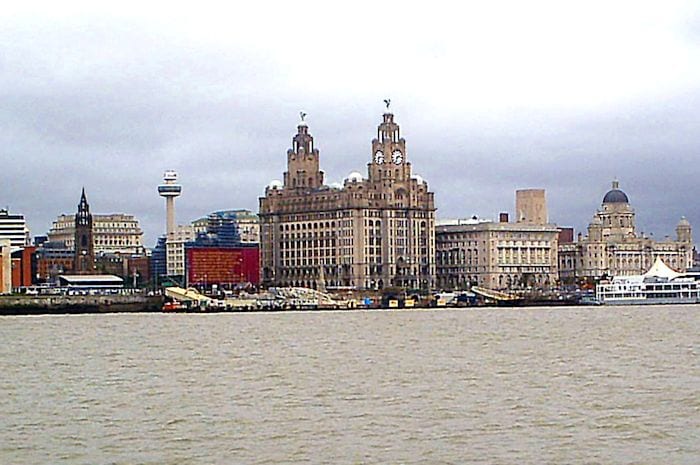
Liverpool and Manchester: why we should be friends with the city down the road
